Europe's timidity before the US Trump respects Baku, not Brussels
Winston Churchill… Charles de Gaulle… Konrad Adenauer… Margaret Thatcher… Each of these names represents a world-class political figure. Leaders who tackled issues on a global scale. Leaders who collaborated with American presidents—whether Franklin Roosevelt or, say, Ronald Reagan. Sure, let’s not sugarcoat it: disagreements existed, but these European figures were truly strong politicians, engaging with U.S. presidents as equals and advancing a common agenda through joint effort.
By now, the reader probably understands why these names come to mind today. The reason is clear: a photo from just two days ago, which has gone viral worldwide. That very photo captured today’s European political elite as misbehaving first graders in the principal’s office—naturally, with Donald Trump in the role of the principal. Only Italian Prime Minister Giorgia Meloni sits independently; the rest look like timid children, fearful of a possible scolding.
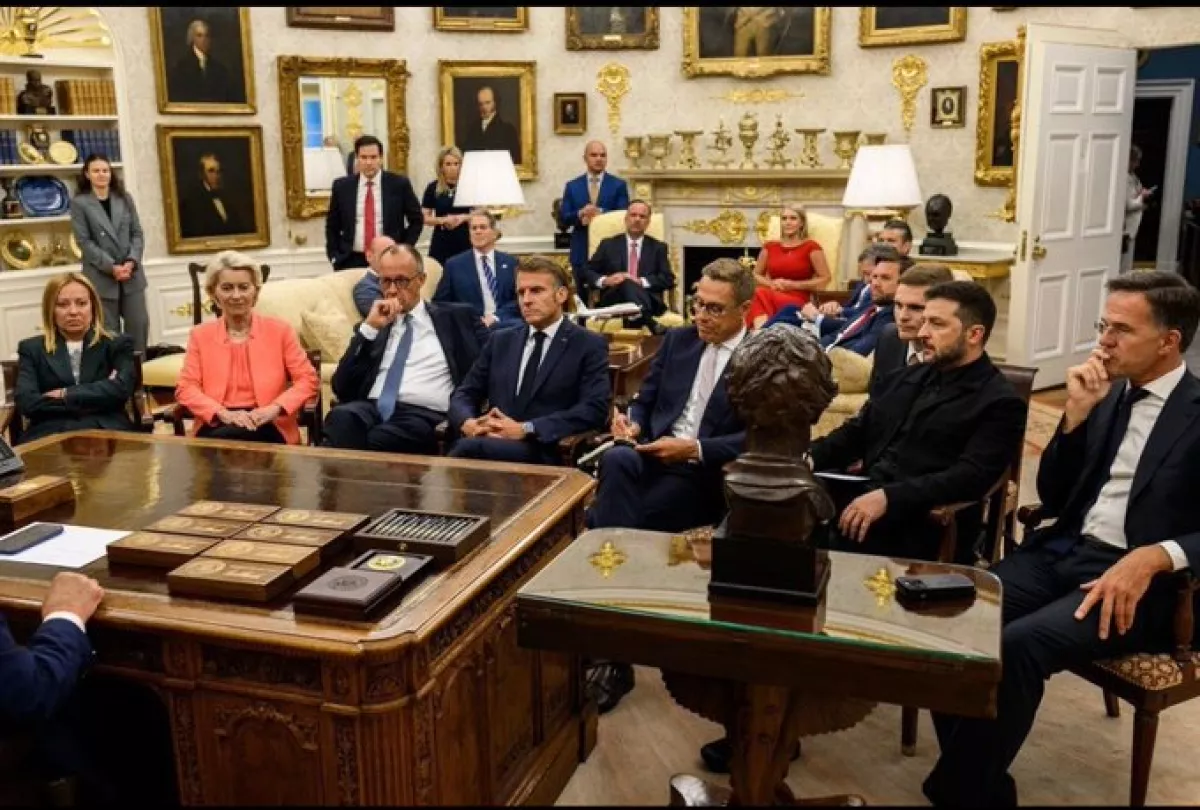
Spineless. Toothless (referring, of course, to the European leaders). That is the only way to describe the overall impression of the photograph. Though, in the context of what has been unfolding on the transatlantic stage throughout 2025, the scene captured by the photographer in the Oval Office is hardly surprising. We vividly recall U.S. Vice President Jay D. Vance’s February “lesson” for European leaders at the Munich Security Conference. Initially speechless, stammering, they tried to articulate some form of disagreement—but nothing coherent ever emerged.
Next came the stage of European leaders posturing, claiming they had a counter-strategy against Trump: “We have all the options mapped out, and we’ll act at the right moment.” Yet, despite all the rhetoric, these threats were empty. During Trump’s breaks from his golf games in Scotland, they quietly accepted all his conditions on tariffs without protest.
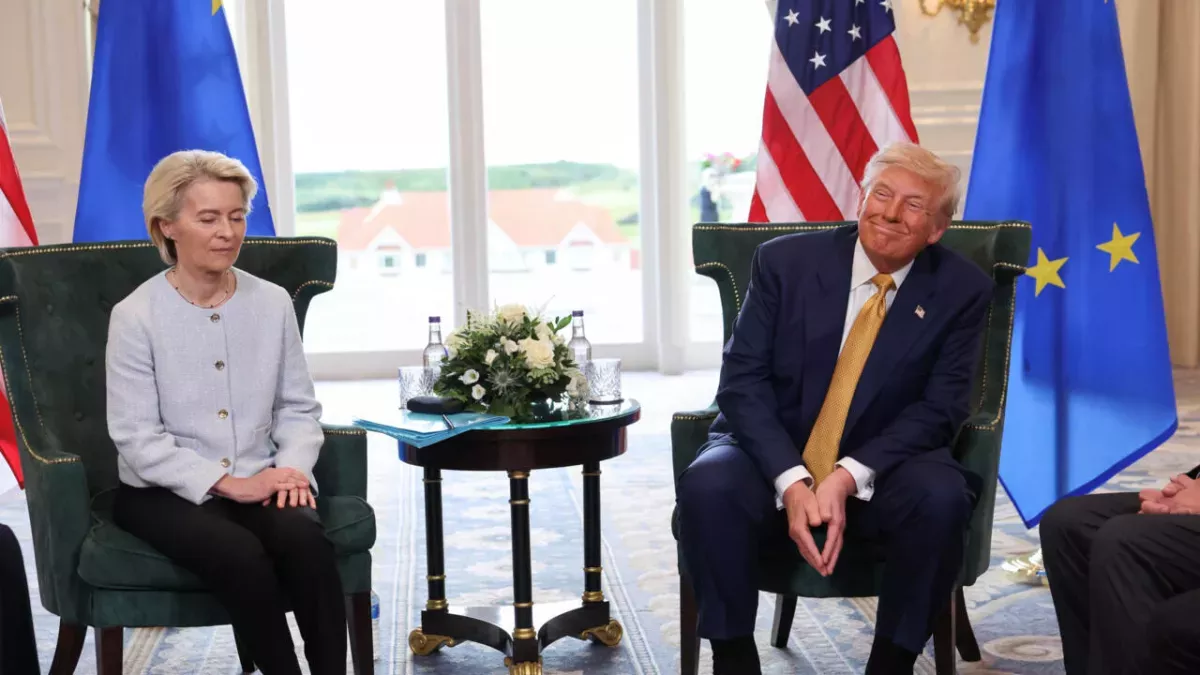
And the flattery directed at Trump was astounding. Take, for instance, the June NATO summit in The Hague, where NATO Secretary-General Mark Rutte explained to journalists why he called Trump “Daddy.” Rutte’s obsequious letter to Trump ahead of the summit was even shared publicly by the U.S. president on his Truth Social platform. Euronews described it as a “flattering text message,” and CNN noted that “Rutte seemed willing to do anything to stroke the U.S. president’s ego.”
A month later, at a July meeting in Washington, Rutte described the United States as the “world’s police by right,” insisting that the U.S. is “the strongest country with the strongest army in the world.”
The picture is probably clear. Not just laughable—it’s downright humiliating. Europe is signing off on its own weakness. Voluntarily. No one forced them.
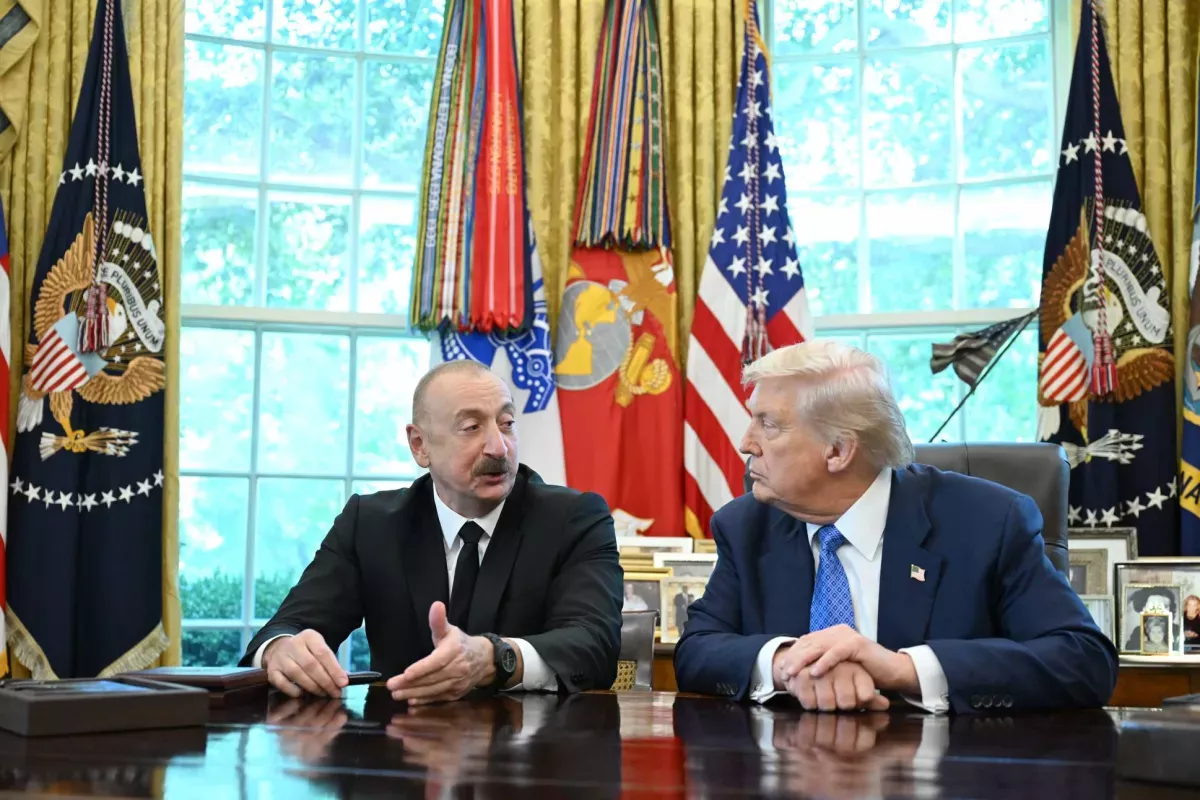
By contrast, the relationship between Donald Trump and Azerbaijani President Ilham Aliyev stands in stark contrast. Footage from Washington covering their recent trilateral meeting clearly demonstrates both Trump’s attention and respect toward Aliyev, and Aliyev’s confidence in leading discussions at the White House. At the core of it: a firm defence of national interests.
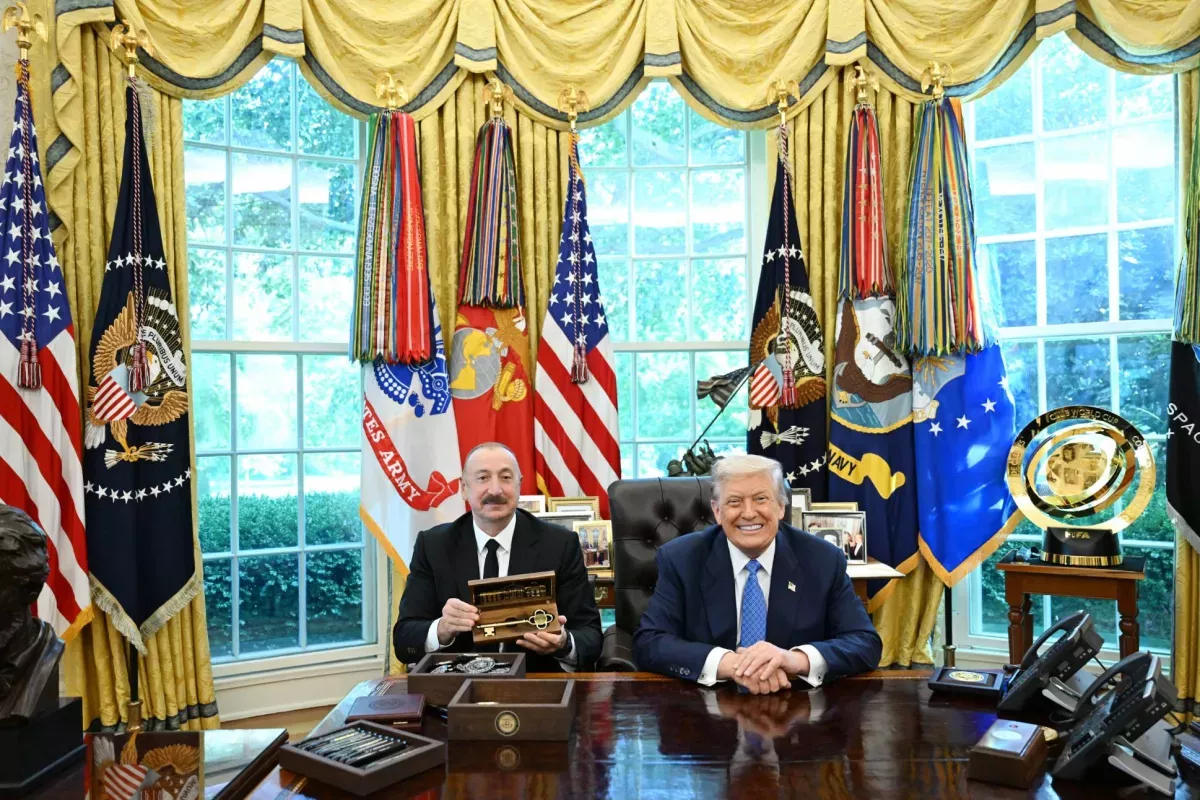
Which makes it almost comical when Europe suddenly tries to lecture countries like Georgia—a nation where elections are transparent and fair—or advise Hungary and Slovakia. Ironically, the prime ministers of these countries, Viktor Orbán and Robert Fico, are, as improbable as it may seem to some, true European leaders. They speak the truth, even if in the minority, defending their people’s interests to the end.
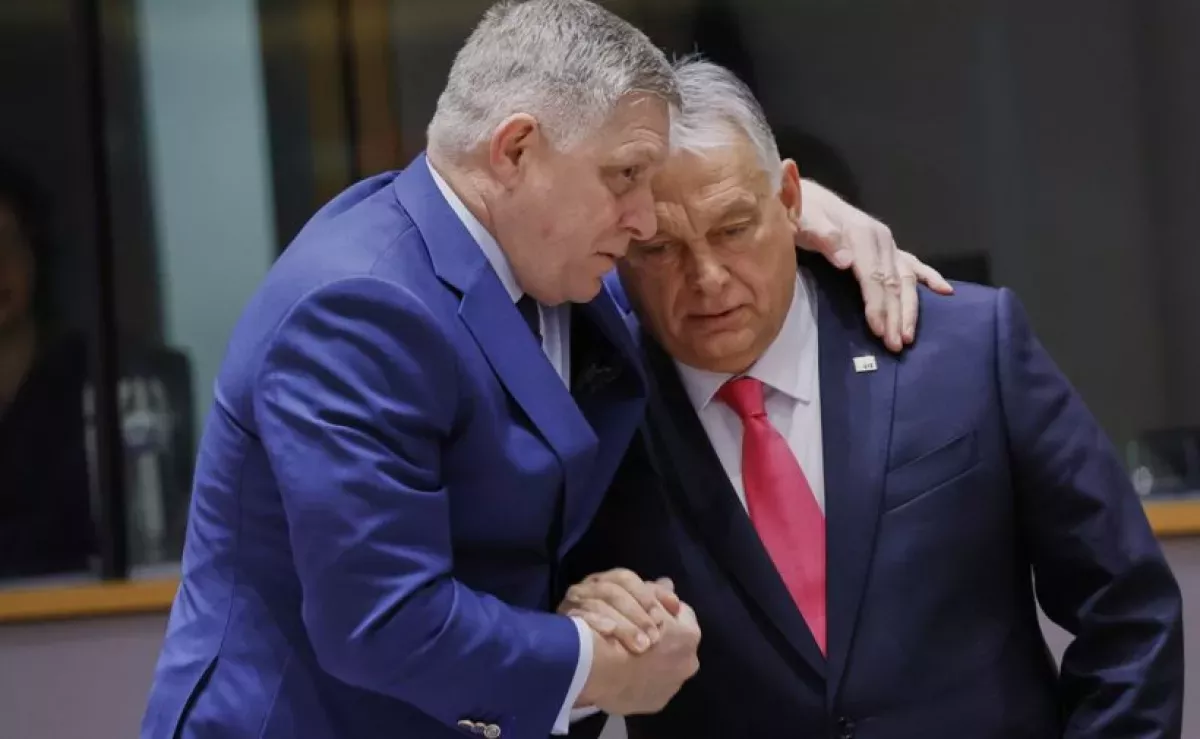
Giorgia Meloni fits into this same category. She has repeatedly taken positions contrary to Brussels’ official line, whether during the internal jockeying over European Commission appointments or in her anti-Macron initiatives that serve Italy’s interests, along with certain geopolitical decisions.
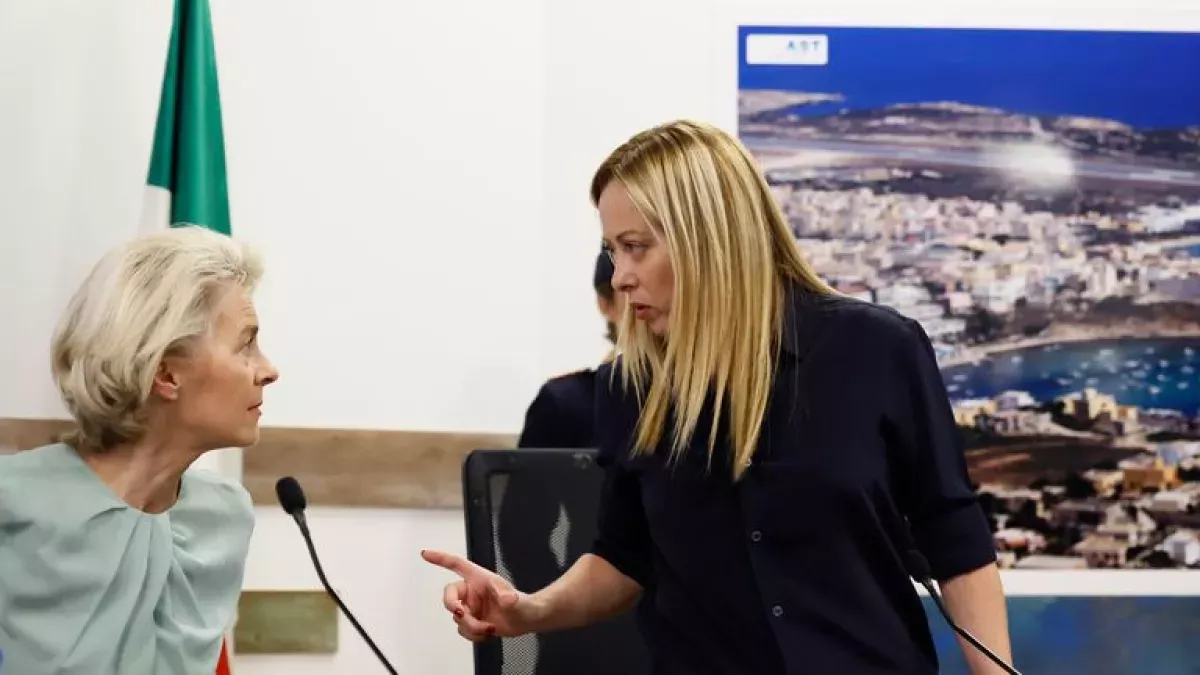
In other words, at this historical juncture, European leaders—especially in Western Europe—find themselves in a deep fissure. There is a way out, of course, but finding it requires intelligence, knowledge, and wisdom. A dose of self-criticism, coupled with a genuine desire to understand their own failures, would help as well. Perhaps then Brussels would stop blaming the rise of European “right-wing” parties or an allegedly unfriendly White House for its weakness. The solution is simpler: they just need to look in the mirror.








